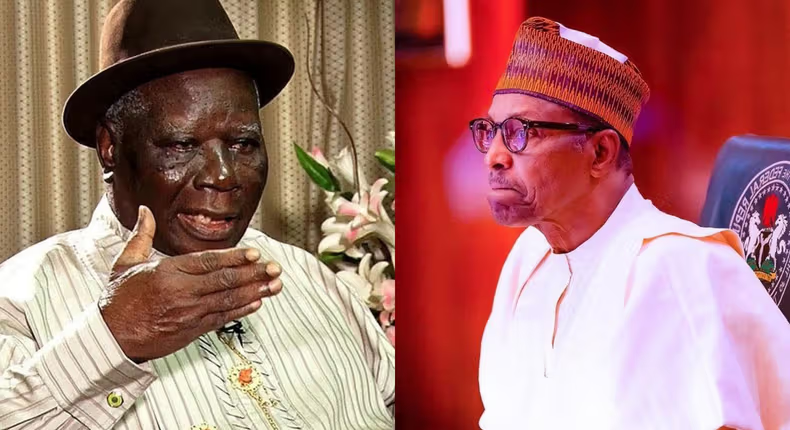Chief Edwin Clark, leader of the Ijaw Nation, has written a letter to President Bola Tinubu, highlighting alleged discrimination against the Igbo people and calling for immediate restructuring of Nigeria to ensure national unity. Here are the key points from his letter:
1. **Accusations Against Former President Buhari**:
– Clark accused former President Muhammadu Buhari of deliberately excluding people from the South-East, particularly Igbo, during his tenure from 2015 to 2019. He cited examples such as the composition of the NNPC board, where no member was appointed from the South-East despite the region having three oil-producing states (Abia, Anambra, Imo).
– He also mentioned disparities in loan allocation, stating that the South-East received less than 1% of a $22.7 billion loan for infrastructural projects, compared to other zones receiving higher percentages.
2. **Current Administration Under Tinubu**:
– Clark criticized President Tinubu for allegedly continuing the discrimination against the Igbo people. He pointed out that Tinubu’s administration appointed 10 ministers from the South-West region, while only appointing five from the South-East.
– He expressed disappointment that the imbalance in ministerial appointments has not been corrected, despite expectations for fairness and inclusivity.
3. **Call for Restructuring**:
– Clark emphasized the urgent need for restructuring Nigeria to address these grievances and ensure the country remains united. He sees restructuring as essential for promoting fairness, equal opportunities, and addressing regional disparities.
4. **Appeal for Justification and Corrective Action**:
– The elder statesman called on President Tinubu to justify the regional disparities in ministerial appointments and take corrective actions to rectify what he perceives as grave omissions and injustices against the Igbo people.
Clark’s letter underscores ongoing concerns about equity and inclusivity in Nigerian governance, particularly regarding regional representation and allocation of resources. It reflects broader debates within Nigeria about federalism, ethnic diversity, and the quest for a more balanced and united nation.
